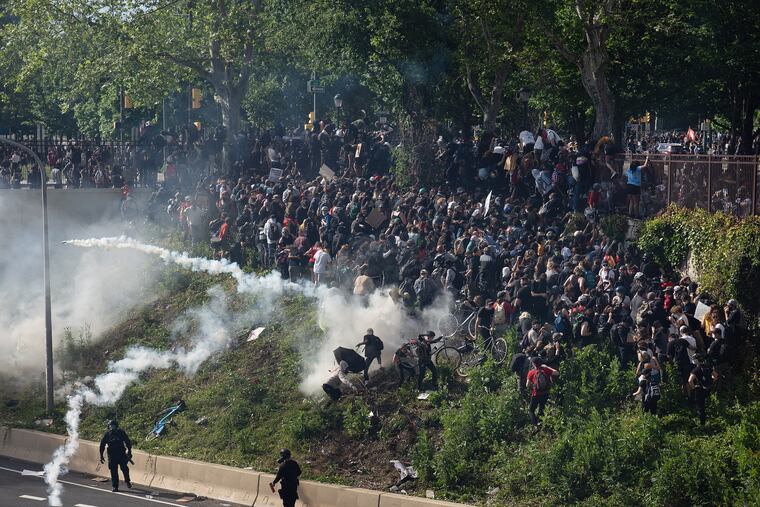Report on Philly police handling of protests is like a crime scene with no fingerprints | Editorial
This is a “mistakes were made” report, freighted with language that points in no single direction as to who was responsible.

The report commissioned by Mayor Kenney to investigate the city’s chaotic, disorganized, and often violent handling of racial protests this summer is infuriating on a number of scores. Count one: The city released the report hours before Christmas Eve, one of the year’s biggest communications black holes. Count two: The findings of the 110-page report can be summed up thusly: “Here are all the mistakes that were made. Don’t make them again.”
Hired by the mayor to provide forensics on the city’s response, researchers from CNA, a research firm, and the law firm Montgomery McCracken Walker & Rhoads reviewed reports and accounts of the protests, interviewed participants, created detailed timelines, identified where failures occurred, and made 77 recommendations for change.
» READ MORE: Police not prepared for protests, report says
Despite its detail, the report relays observations, but points no fingers at any one individual or office.
In fact, the report is like a crime scene with no fingerprints.
This is a “mistakes were made” report — freighted with language that points in no single direction as to who was responsible for those mistakes. The writer Charles Baxter calls the “mistakes were made” approach a “dysfunctional narrative” because it doesn’t satisfy the need to know who acted, or why. Here’s a small sampling of sentences from the report:
“Calls went unanswered.”
“Officer engagement with protesters likely contributed to an escalation in tensions and use of force that likely could have been avoided.”
“Officers inconsistently abided by instructions given in prior trainings…”
“It appears that several of these instances in which OC spray was deployed were unnecessary, ineffective and contrary to PPD policy.”
“…protocols were not always followed and consequently led to delays in field responses to protests…”
“Authorization was not sought from the police commissioner prior to the deployment of CS gas.”
This language avoids asking the most important questions: Who failed, what are the consequences of those failures, and who is paying the consequences?
In July, City Managing Director Brian Abernathy resigned over the city’s failure to adequately respond to the protests. There is barely a mention of the Managing Director’s office in the report. Is Abernathy’s resignation supposed to be the end of it?
Commissioner Danielle Outlaw says she is already acting on many of the recommendations. The police department can order training, budget for more cameras, and follow every recommendation. But if police ignore training, commands, and protocols as they did this summer, what’s the point? That doesn’t address the structural flaws in the department, or address how they were allowed to continue.
The city’s response to the protests breached the trust of the police and the communities it is supposed to serve. That’s reflected in a notable section in the report, when the authors scheduled four listening sessions inviting members of the public to discuss the protests. All were cancelled because no one registered.
City Controller Rebecca Rhynhart is about to issue her office’s report on the city’s handling of the protests. Since it is independent and includes input from community members, we hope that it will be able to shed more light on how things went so wrong, and who bears responsibility for making sure it never happens again.